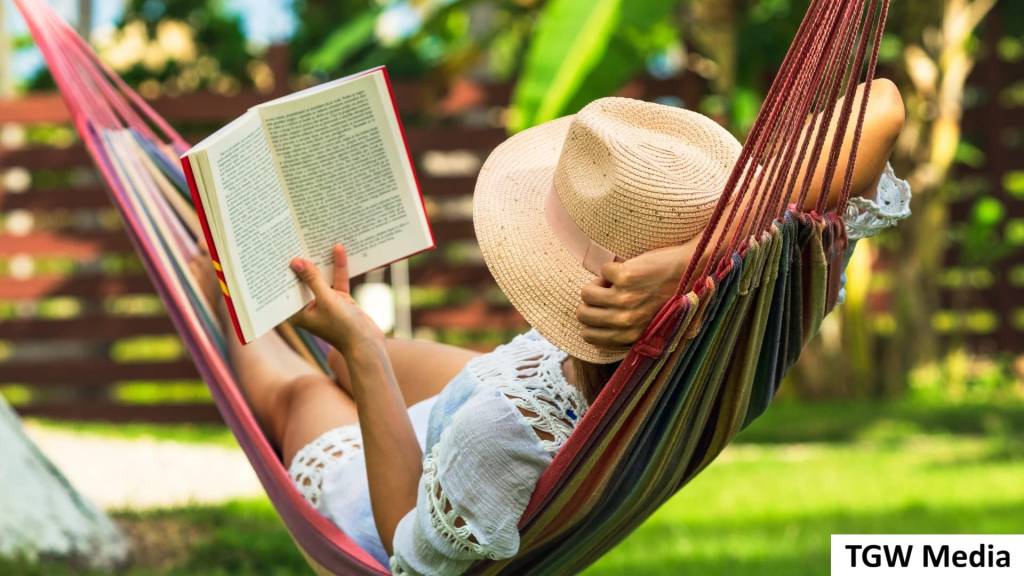Ever noticed how something that feels completely relaxing to you can be overwhelming to someone else? That’s especially true for introverts and extroverts. What introverts see as peace, extroverts often see as boring or even uncomfortable. These differences are rooted in how we recharge our energy. For introverts, it’s about solitude and quiet moments, while extroverts thrive on activity and connection. Here are nine things introverts genuinely find soothing that extroverts usually struggle to understand.
Table of Contents

Everyday Habits Introverts Love
For many introverts, the activities that bring the deepest sense of calm often look puzzling to the outside world. What seems like “doing nothing” to an extrovert can actually feel like recharging the soul for someone who needs quiet to reset.
These small but powerful moments aren’t about isolation; they’re about finding balance in a world that often feels too loud. And once you notice them, you’ll see how much they reveal about the way introverts truly thrive. Let’s find out more about them below!
Read More: Expert Reveals, The Hidden Psychology Behind Walking With Hands Behind Your Back
1. Why silence feels like therapy for introverts
Introverts often find comfort in complete silence. No background TV, no chatter, no music. Just stillness. To them, silence is like letting their mind finally breathe. On the other hand, many extroverts call silence “awkward” and quickly try to fill it with noise. The truth is, silence isn’t emptiness; it’s clarity.
Quick example: Think of an introvert driving in silence as peaceful reflection, while an extrovert sees it as an “aux cord emergency.”
2. Why cancelled plans feel like a gift
Extroverts usually get disappointed when plans are cancelled. Introverts, however, often feel relieved. It doesn’t mean they don’t like people. It’s about having unexpected free time to recharge without obligations.
Takeaway: For introverts, cancelled plans feel like finding $20 in an old jacket pocket. For extroverts, it feels like missing out.
Read More: Quiet but Powerful: 5 Psychological Traits of People Who Scroll But Never Post on Social Media

3. How reading for hours recharges introverts
Introverts can lose themselves in a book for hours, wrapped in a blanket with tea by their side. Extroverts, on the other hand, might wonder how someone can sit still that long. The answer lies in mental stimulation. For introverts, books provide the depth and escape they crave.
Mobile-friendly bullets:
- Quiet reading lowers stress
- Creates a mental “reset button”
- Builds emotional resilience
4. Why solo walks feel freeing
Walking alone, sometimes with headphones, gives introverts space to think. It feels restorative rather than lonely. Extroverts often feel the urge to bring company or strike up a conversation with strangers. For introverts, walking solo is about recharging, not isolation.
Read More: Psychology Reveals, 5 Life-Changing Habits of Successful People That Most Ignore!
5. Why introverts crave deep conversations over small talk
Small talk can feel draining to introverts. They thrive in meaningful, late-night discussions with close friends, rather than engaging in surface-level chatter at crowded parties.
Example: Imagine being stuck at a networking event with 50 “What do you do for work?” questions. Introverts leave exhausted. One heart-to-heart with a friend? Energizing.
6. Why staying home doing “nothing” feels productive
Spending an evening in sweatpants, binge-watching a show, or simply lounging around can feel incredibly restorative to introverts. Extroverts may see it as wasted time, but introverts call it essential self-care.
Read More: 3 Toxic Friendship Red Flags You Should Never Ignore – Per Psychologists!

7. Why listening feels more natural than talking
Introverts often feel comfortable just listening instead of leading a conversation. It doesn’t mean they lack opinions; it just feels less draining to observe. Extroverts may find silence uncomfortable, but introverts find it grounding.
8. Why “boring” hobbies are anything but boring
Knitting, journaling, puzzles, or gardening may not look exciting on social media, but these hobbies calm the nervous system. While extroverts ask, “What’s the point?” introverts see them as powerful stress relievers.
Read More: 10 Everyday Struggles Only Introverts Truly Understand (Psychology Explains Why)!
9. Why being alone in a crowd feels comforting
Introverts can enjoy sitting in a busy café, sipping coffee with headphones, while being surrounded by strangers. They don’t feel the need to interact, just coexist. Extroverts usually feel compelled to strike up conversations, while introverts feel comfort in quiet presence.
Why introverts need this space to recharge
It’s not about hating people. It’s about energy management. Extroverts recharge around others. Introverts recharge in solitude. Think of it like charging a phone. Extroverts plug in at parties, introverts plug in when they’re alone.
Read More: Psychologists Reveal, 8 Things That Instantly Make You Look Like You Have No Self-Respect!

Frequently Asked Questions:
Why do introverts need so much alone time?
Because social interactions can drain their energy, solitude helps them recharge mentally and emotionally.
Is being an introvert the same as being shy?
No. Introversion is about energy, while shyness is about fear of judgment. Many introverts are confident; they just prefer quiet.
Why do introverts avoid small talk?
Because it feels surface-level and draining. They prefer meaningful, emotionally engaging conversations.
Can extroverts learn to enjoy silence?
Yes, but it often feels uncomfortable at first. Over time, silence can become a powerful tool for stress relief.
Do introverts hate people?
Not at all. Introverts value relationships deeply but need balance to avoid burnout.
Disclaimer: To bring you clear and accurate insights, we used AI tools alongside expert review. The content is informational and not a replacement for professional guidance.




